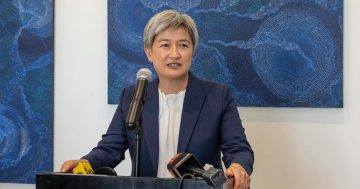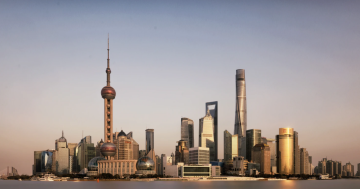Reviewed by Rama Gaind.
By Lachlan Brown, Giramondo Publishing, $24.00.
 The intricate braid about Chinese-Australian inheritance comes predominantly to the fore here. It would be correct to say this is “a deep meditation on fractured origins and the process of remaking”.
The intricate braid about Chinese-Australian inheritance comes predominantly to the fore here. It would be correct to say this is “a deep meditation on fractured origins and the process of remaking”.
A Chinese grandmother is unable to distinguish between the value of things as she fills her Ashfield home with objects. Her Asian-Australian grandson, in the meantime, is trying to make sense of his own Chinese and Anglo-Australian background growing up in suburban Sydney.
Brown’s second book of poetry embarks on a journey through contemporary Chinese cities. He travels to China for the first time, cautious of the revelations that the trip might unfold.
A shadowy heritage reveals itself, in Guangzhou, Kaiping, Shanghai, and Beijing, amidst the incessant construction and consumption of 21st century China. Intriguing is the way in which the suburbs he knows from back home are threaded into the cities he visits, astonished by the speed and terrifying elegance of China’s economic growth.
As the author says: Lunar Inheritance is about claiming and being claimed by China. “And it foregrounds those complex legacies which are inherited (or disinherited) when one has both Chinese and Anglo-Australian ancestries.”
“In this way it offers a poetry that reveals an ‘un-heritage stacked five/stories high’ in Kaiping, or the ‘blended circumstance’ of the members of the Chinese diaspora in Sydney. Exploring hybridity and identity, the poems … are playfully evocative and intellectually rigorous, skimming across the surfaces of modern-day existence.”
Unfolding as 12 long poems, each is divided into a series of concentrated octaves. “Punctuating these series are a number of sharpened sonnets, offering an agitating and sometimes strident counter-melody. This formal control allows the book to fuse disquieting family histories with contemporary urban counter-experiences, setting these against the syncopated rhythms of faith and doubt.”
As one appraisal aptly noted: “Brown’s postcards sing crisp Guangzhou mornings and hints of dry Australian sunsets”.











